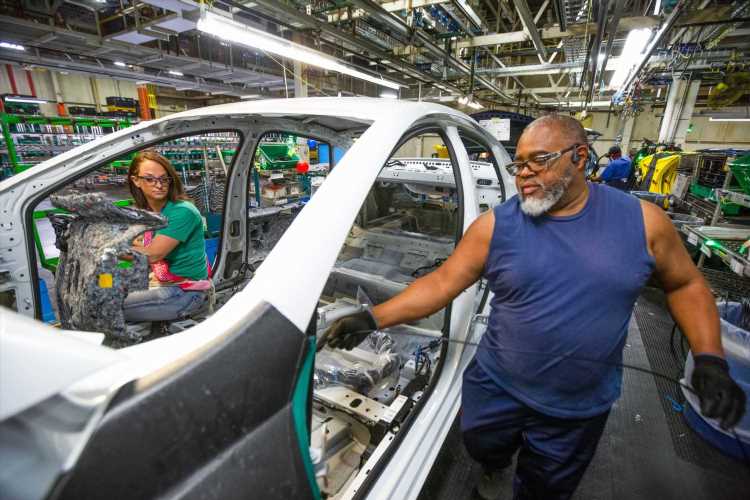- General Motors believes the worst of a global chip shortage, which has forced automakers to cut production and close plants, could be behind it.
- The automaker's finance chief said this development has led to optimism that GM will achieve its guidance for the year.
- GM's 2021 guidance include earnings of $10 billion to $11 billion, or $4.50 to $5.25 per share, in adjusted pretax profit.
General Motors executives believe the global chip shortage, which has forced automakers to cut production and close plants, is beginning to improve and are confident the company will hit its earnings targets for the year.
"Over the last couple of weeks as we talked about this being a volatile situation, we've actually seen the situation get better for us," GM CFO Paul Jacobson said during a Wolfe Research conference Wednesday afternoon. "At this point, I would say that we're highly confident about being able to hit our guidance that we put out to the Street."
GM said earlier this month it expected to earn $10 billion to $11 billion, or $4.50 to $5.25 per share, in adjusted pretax profit this year. It projected adjusted free cash flow of $1 billion to $2 billion for its automotive division in 2021.
The forecasts factored in the potential impact of the chip shortage, including a hit of $1.5 billion to $2.5 billion to its free cash flow. That impact remains as GM combats the situation and even partially builds some high-demand vehicles.
"We feel confident that we're working through this issue and that we'll be able to return to normal as soon as the back half of this year … and a high degree of confidence that this isn't going to be an issue for us going forward," Jacobson said.
Due to the shortage, GM temporarily closed car and crossover plants in Kansas, Canada and Mexico through mid-March. The automaker has said it is prioritizing production of its "most in-demand products – including full-size trucks and SUVs and Corvettes," which also happen to be its most-profitable vehicles as well.
"We've probably got a little bit of a higher level of conviction today than we did a two weeks ago," Jacobson said.
Consulting firm AlixPartners estimates the chip shortage to cut $60.6 billion in revenue from the global automotive industry this year. That estimate includes the entire supply chain — from dealers and automakers to large suppliers and their smaller counterparts.
Automakers and parts suppliers began warning of the shortage late last year after demand for vehicles rebounded more strongly than expected after automakers were forced to shut down production last spring to help contain the coronavirus pandemic.
Semiconductor chips are extremely important components of new vehicles for areas like infotainment systems and more basic parts such as power steering and brakes.
Depending on the vehicle and its options, experts say a vehicle could have hundreds of semiconductors. Higher-priced vehicles with advanced safety and infotainment systems have far more than a base model, including different types of chips.
Source: Read Full Article
